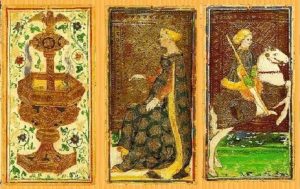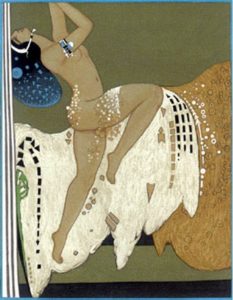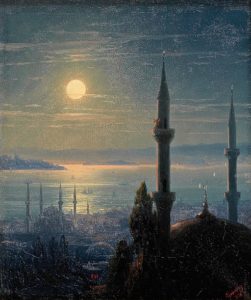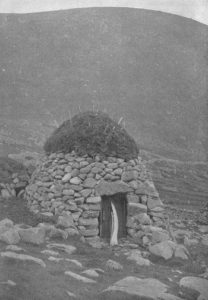Our Lady of the Winter Squash by Jenny Blackford
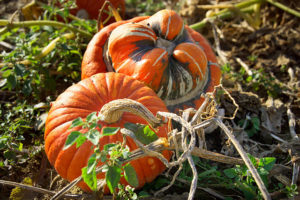
On every stair and fence and wall
icons and idols remind us of the fleshy
seed-stuffed bounty of our Goddess
during this her yearly festival
and sacred celebration.
Even in the chrome and marble foyer
see the altar loaded
with black and orange offerings
to Our Lady of the Winter Squash.
Our golden goddess feeds the world.
Give Her bones and blood
the best foods for the soil.
Please Her with images
of her sacred animals: crawly spiders
in massed grey webs
scattered with dry-sucked corpses,
flapping bats that feed on flowers, fruit
and blood,
and arch-backed cats
as fecund as the night.

